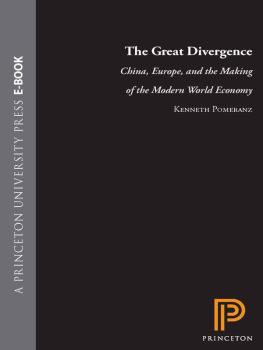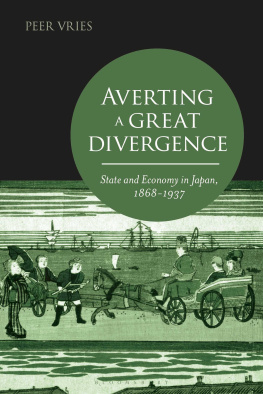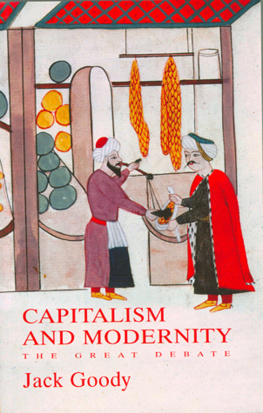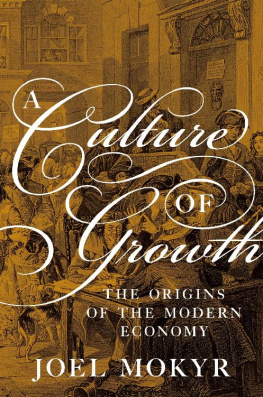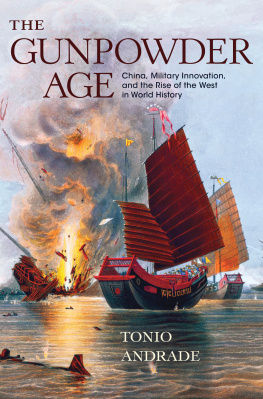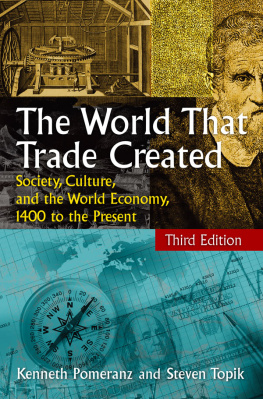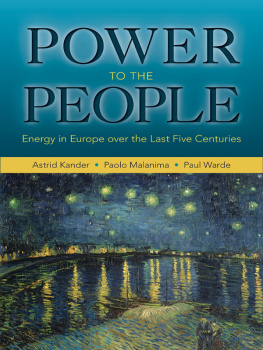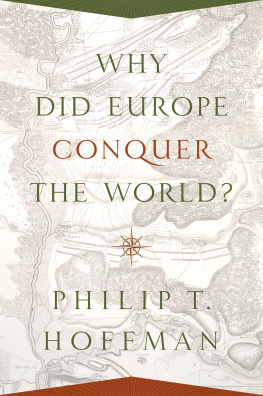
THE GREAT DIVERGENCE
THE PRINCETON ECONOMIC HISTORY OF THE WESTERN WORLD
Joel Mokyr, Editor
Growth in a Traditional Society: The French Countryside, 14501815, by Philip T. Hoffman
The Vanishing Irish: Households, Migration, and the Rural Economy in Ireland, 18501914, by Timothy W. Guinnane
Black 47 and Beyond: The Great Irish Famine in History, Economy, and Memory, by Cormac Grda
The Great Divergence: China, Europe, and the Making of the Modern World Economy, by Kenneth Pomeranz
COPYRIGHT 2000 BY PRINCETON UNIVERSITY PRESS
PUBLISHED BY PRINCETON UNIVERSITY PRESS, 41 WILLIAM STREET, PRINCETON, NEW JERSEY 08540
IN THE UNITED KINGDOM: PRINCETON UNIVERSITY PRESS, 3 MARKET PLACE, WOODSTOCK, OXFORDSHIRE OX20 1SY
ALL RIGHTS RESERVED
LIBRARY OF CONGRESS CATALOGING-IN-PUBLICATION DATA
POMERANZ, KENNETH
THE GREAT DIVERGENCE : CHINA, EUROPE, AND THE MAKING OF THE MODERN WORLD ECONOMY / KENNETH POMERANZ.
P. CM. (THE PRINCETON ECONOMIC HISTORY OF THE WESTERN WORLD)
INCLUDES BIBLIOGRAPHICAL REFERENCES AND INDEX.
ISBN 0-691-00543-5 (CL : ALK. PAPER)
1. EUROPEECONOMIC CONDITIONS18TH CENTURY. 2. EUROPEECONOMIC CONDITIONS19TH CENTURY. 3. CHINAECONOMIC CONDITIONS16441912. 4. ECONOMIC DEVELOPMENTHIST ORY. 5. COMPARATIVE ECONOMICS.
I. TITLE. II. SERIES.
HC240.P5965 2000
337DC21 99-27681
THIS BOOK HAS BEEN COMPOSED IN TIMES ROMAN
THE PAPER USED IN THIS PUBLICATION MEETS THE MINIMUM REQUIREMENTS OF ANSI/NISO Z39.48-1992
(R1997) (PERMANENCE OF PAPER)
WWW.PUP.PRINCETON.EDU
PRINTED IN THE UNITED STATES OF AMERICA
3 5 7 9 10 8 6 4 2
ACKNOWLEDGMENTS
L ARGE PROJECTS create many debts. The complicated path of this project, which originally began as a chapter for a very different book, made the comments and counsel of many people even more important than usual.
Many people have read and provided helpful comments on some version of this manuscript: Steven Topik, Timothy Guinnane, R. Bin Wong, Daniel Segal, Joel Mokyr, Andre Gunder Frank, Edmund Burke III, Randolph Head and the students in his world history seminar, James Given, Jack Goldstone, Robert Marks, Dennis Flynn, Richard Von Glahn, and Jason Hecht. Along the way, pieces of the project were also presented at many conferences and workshops, where colleagues too numerous to list provided incisive and useful suggestions. The thoughtful comments that always emerge at meetings of the All-UC Group in Economic History are particularly noteworthy. This being the age of cyber-collegiality, I also owe thanks to Joshua Rosenbloom, Alan Taylor, and Samuel Williamson, who organized an exceptionally helpful electronic discussion after I presented a short version of the books argument on EH.NET. The provocative ideas and helpful suggestions that arose from that discussion (and a later one on H-World, moderated by Patrick Manning) were immensely helpful.
Since this book took me far beyond the area of my training, I also relied on many colleagues who helped steer me to what I needed to read in fields they knew far better than I did; along with many of the people listed above, Robert Moeller, Anne Walthall, and James Lee were particularly helpful. Other colleagues helped move the project along in other ways: Peter Lindert, John Wills, Jonathan Spence, Deirdre McCloskey, Ken Sokoloff, and Hamashita Takeshi stand out from a long list.
A list of debts this long risks diluting the acknowledgment to any one colleague; that is not, of course, my intent. Bin Wong deserves special mention for reading through two versions of the manuscript, talking through problems with the argument, and brainstorming about bibliography; though I have come to take his high level of collegiality for granted, it is anything but ordinary. It is also a special pleasure to have a belated opportunity to give thanks in print to Dan Segal. It is hard for me to imagine learning more from anyone than I have from Dan these twenty-plus years, either about the subjects that interest both of us or about what it means to have good friends. Since I believe every person on this list has raised at least some objections to the argument, the usual statement that none of them is responsible for the errors I persist in is worth reiterating.
I have also benefited from considerable material support while writing this book. It began to take shape (though in a very different form) while I was on a leave to work on another project, generously supported by the University of California Presidents Research Fellowship and an ACLS/SSRC/Ford Foundation Joint Fellowship in Chinese Studies. Much of the writing was done during a subsequent leave made possible by the largesse of the John Simon Guggenheim Memorial Foundation and the University of California, Irvine. This book has been considerably improved by the help and encouragement offered by Peter Dougherty of Princeton University Press and his assistant Linda Chang, and by the deft and careful copy-editing of Jennifer Backer.
My personal debts are no smaller than my professional ones. Much of this book was written under difficult circumstances, which would have been far more difficult without the help of many people. When trouble hit, old and new friends, colleagues, and a remarkable set of neighbors all rallied around in truly extraordinary ways. I cannot list them all, and I would be very sorry to leave any of them out, so a collective thank-you will have to do; it is no less heartfelt for being general.
Last but never least, my family has shown remarkable strength during these years, without which I could not possibly have found any time or calm in which to write. David, Jesse, and Benjy needed and showed courage and determination far beyond what one expects from young children; they met their challenges again and again, while always remaining warm, sweet, and loving children. I owe a great deal to all of them.
As for my wife, Maureen Graves, what is there to say? An analogy we have heard often these past few years seems apt. Having planned a trip to Paris, we found ourselves in New Zealand insteadand Maureen has never lost sight of either the goal of getting back to Paris or the possibility of enjoying New Zealand, if you just stop looking for the Louvre. This balancing act has taken patience, perseverance, vision, and love, far more of each than I can ever explain or give adequate thanks for. But as one small gesture of appreciation, this is her book.
Irvine, California
September 1998
THE GREAT DIVERGENCE
INTRODUCTION
COMPARISONS, CONNECTIONS, AND NARRATIVES OF EUROPEAN ECONOMIC DEVELOPMENT
M UCH OF modern social science originated in efforts by late nineteenth- and twentieth-century Europeans to understand what made the economic development path of western Europe unique; yet those efforts have yielded no consensus. Most of the literature has focused on Europe, seeking to explain its early development of large-scale mechanized industry. Comparisons with other parts of the world have been used to show that Europeor in some formulations, western Europe, Protestant Europe, or even just Englandhad within its borders some unique homegrown ingredient of industrial success or was uniquely free of some impediment.
Other explanations have highlighted relations between Europe and other parts of the worldparticularly various forms of colonial extractionbut they have found less favor with the majority of Western scholars. It has not helped matters that these arguments have emphasized what Marx called the primitive accumulation of capital through the forcible dispossession of Amerindians and enslaved Africans (and many members of Europes own lower classes). While that phrase accurately highlights the brutality of these processes, it also implies that this accumulation was primitive in the sense of being the
Next page
